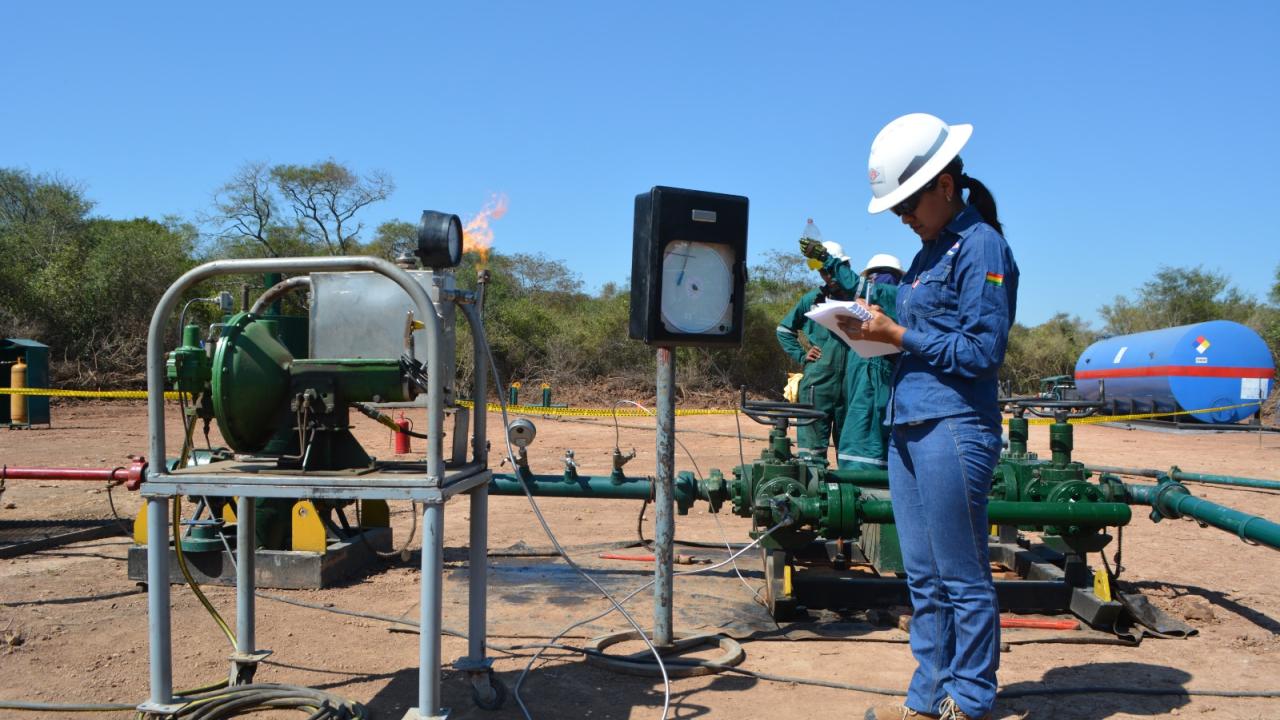
In 2019 it reached US$2,005 million, in 2020 it dropped to US$1,652 million and a year later it rose to US$1,701 million. While in 2022 it registered a record with US$ 2,657 million.
Between January and December 2023, Bolivia obtained income of US$ 2,043 million from oil revenue, which represents 23% less than what was achieved in 2022 when it reached US$ 2,657 million.
The president of Yacimientos Petrolófilos Fiscales Bolivianos (YPFB), Armin Dorgathen, reported that these incomes are destined to subnational governments to contribute to the economic reactivation of the highland country.
“We prioritize initiatives to increase Oil Rent despite the natural decline in production. These income benefit governorates, municipalities, public universities, the General State Treasury (TGN) and YPFB,” he stated.
According to information from the state oil company, in the 2023 Final Accountability Public Hearing, oil income fluctuated. In 2019 it reached US$2,005 million, in 2020 it dropped to US$1,652 million and a year later it rose to US$1,701 million. While in 2022 it registered a record with US$ 2,657 million.
However, as Dorgathen noted, in recent years Bolivia has seen a decline in daily natural gas production that has affected revenues.
PRODUCTION
In 2019, there was an average production of 45.36 million cubic meters per day (MMm3d), in 2020 it dropped to 43.42 MMm3d, and then, in 2021, it stood at 45.12 MMm3d.
Starting in 2022, the decline was accentuated, that year it reached 41.30 MMm3d and last year it dropped to 36.33 MMm3d.
The total amount of royalties obtained in 2023, said Dorgathen, is the result of the commercialization of hydrocarbons and the activities carried out in the sector. It represents the sum of the income generated by the Direct Tax on Hydrocarbons (IDH), Royalties and Participation to the TGN, Participation of YPFB, Patents and taxes and others.
In that sense, the oil income generated period by period means important income for governorates, municipalities, public universities and others, becoming a source of economic resources for these entities and institutions, to fulfill all their obligations.
The income generated by Bolivia's hydrocarbon sector directly favors and contributes to the growth and development of all the beneficiaries of these resources (governors, municipalities, the public university system and others), in addition to supporting the development of different programs and health coverage, education, housing, employment and productive diversification projects that improve the quality of life of Bolivian families.










